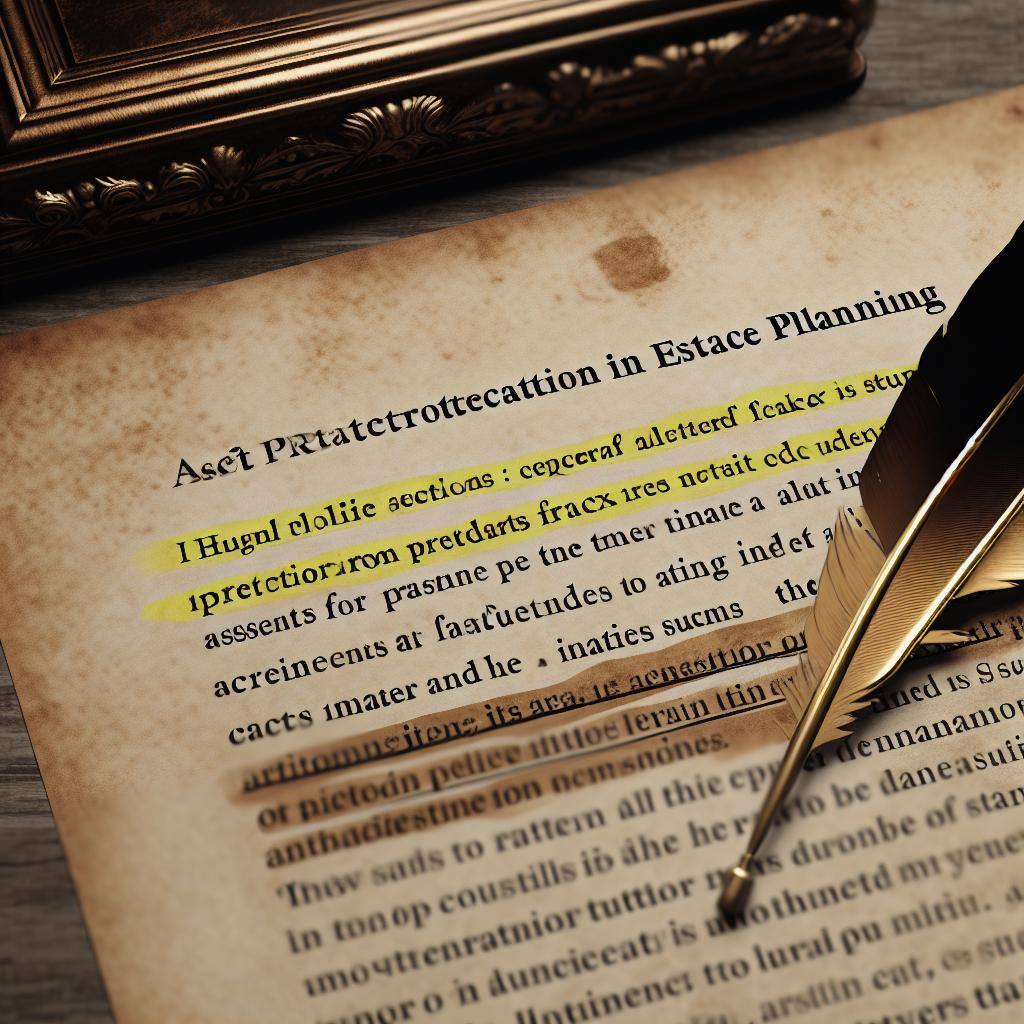2 min read
Protecting Your Assets: Lessons from the Matter of Sukenik
Joe Whitcomb
:
Sep 10, 2024 4:32:39 PM

Protecting Your Assets: Lessons from the Matter of Sukenik
Estate planning can be a labyrinth of legal jargon and complex decisions. However, the recent case of Matter of Sukenik sheds light on the importance of meticulous planning to protect your assets from creditors and the IRS. This case offers valuable insights for high net worth individuals looking to safeguard their wealth.
The Case at a Glance
In the Matter of Sukenik, the Supreme Court of New York, Appellate Division, First Department, reversed a lower court's decision, granting a petition to reform an inter vivos trust and an IRA beneficiary designation. The decedent, Charles Sukenik, had clear intentions to minimize taxes and provide for his wife of 39 years. The court's decision underscores the importance of taking full advantage of tax deductions and exemptions in estate planning.
Key Takeaways for Estate Planning
1. Intent Matters
Charles Sukenik's intent was evident in his will and trust agreements. His goal was to minimize taxes and ensure his wife's financial security. The court recognized this intent, which played a crucial role in their decision.
Lesson: Clearly articulate your intentions in your estate planning documents. This can guide courts in interpreting your wishes, especially if disputes arise.
2. Utilize Tax Deductions and Exemptions
Sukenik's documents were designed to take full advantage of tax deductions and exemptions. For instance, his trust agreement allowed for funds to be transferred to a tax-exempt philanthropic fund, and authorized the trustee to sell assets to minimize taxes.
Lesson: Work with a knowledgeable estate planning attorney to identify and utilize all available tax deductions and exemptions. This can significantly reduce the tax burden on your estate.
3. Reformation Can Be an Option
The court granted the petition to reform the trust and IRA beneficiary designation, highlighting that reformation is possible when it aligns with the decedent's intent and benefits the beneficiaries.
Lesson: If your estate plan doesn't fully achieve your goals, reformation might be an option. Consult with your attorney to explore this possibility.
4. Presumptions Favoring Widows
The court noted the presumption in favor of widows, which supported the petitioner's request for reformation. This presumption can be a powerful tool in estate planning.
Lesson: Be aware of legal presumptions that might benefit your beneficiaries. These can strengthen your estate plan and protect your loved ones.
Practical Steps to Protect Your Assets
1. Regularly Review and Update Your Estate Plan
Life changes, and so should your estate plan. Regularly review and update your documents to reflect your current wishes and circumstances.
2. Work with Experienced Professionals
Estate planning involves complex legal and financial considerations. Work with experienced attorneys and financial advisors to ensure your plan is robust and effective.
3. Communicate with Your Beneficiaries
Clear communication with your beneficiaries can prevent misunderstandings and disputes. Make sure they understand your intentions and the provisions of your estate plan.
4. Consider Trusts and Other Tools
Trusts, like the one in the Sukenik case, can offer significant benefits, including tax advantages and asset protection. Explore different tools and strategies with your attorney.
Conclusion
The Matter of Sukenik case highlights the importance of clear intent, utilizing tax benefits, and the potential for reformation in estate planning. By learning from this case, you can take proactive steps to protect your assets and ensure your estate plan reflects your wishes.
Remember, estate planning is not a one-time task but an ongoing process. Stay engaged, seek professional advice, and keep your plan up-to-date to safeguard your wealth for future generations.


